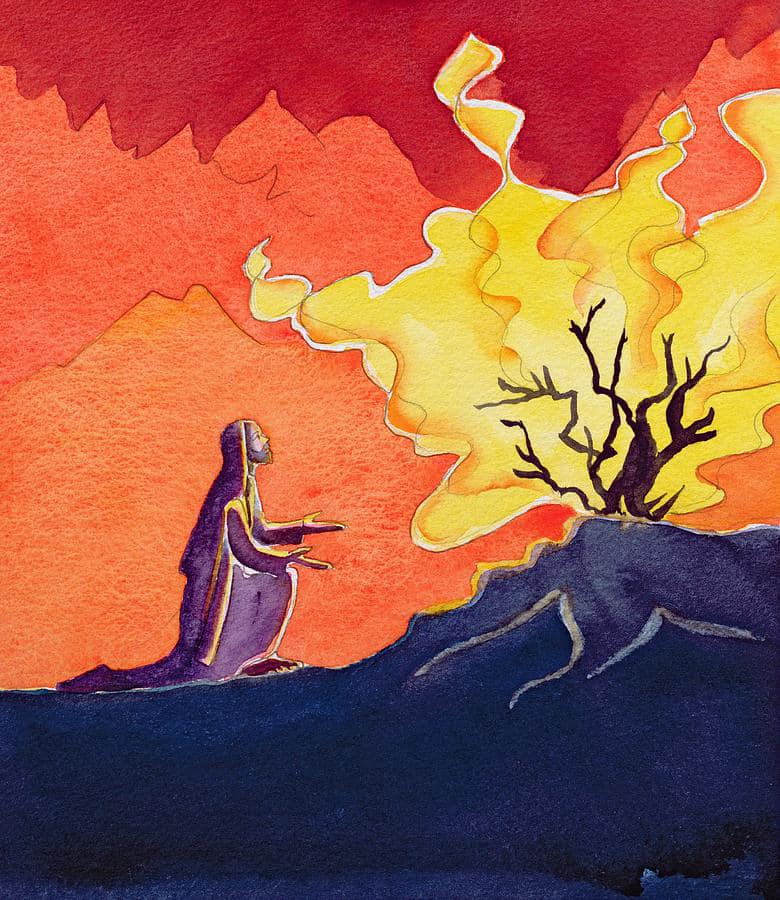196 total views

Homily for Wed of the 15th Wk in OT, 19 July 2023, Mt 11:25-27
The reason why Moses ran away from Egypt and settled in Midian is clear. He could not bear the sight of so much pain being endured by the Hebrew slaves. He also could not understand why he was so affected by the sufferings of these people in spite of the fact that he was raised in a palace as an Egyptian prince and did not yet know his true identity. One day he must have felt so indignant when he saw one Egyptian taskmaster physically abusing a Hebrew slave. He defended the slave and ended up killing the abuser. It was after that that he ran away—perhaps to understand who he was, and why these slaves affected him so much.
He wanted a life that was more quiet and peaceful, away from violence and inhumanity. And so he married a girl, had a child with her, worked as a shepherd for his father-in-law and intended to settle in Midian for good. Until that one fine day when God disturbed his peace again and appeared to him in the form of a flaming bush whose fire simply would not burn out. The encounter began with plain curiosity about something—an inextinguishable fire.
I call the burning bush the image of a “God in pain”. Some philosophers have reacted to the concept of a “Suffering God” as absurd. They invented the word “impassable” as an attribute of a perfect God, meaning—that God is “incapable of suffering” because suffering is supposed to be a sign of imperfection. I beg to disagree. If God is a God of love, how can God not suffer when the ones he loves are in pain?
And so the message Moses got from the burning bush can be paraphrased this way: “Moses, are you miserable seeing the misery of those slaves in Egypt? I want you to know that the pain that you feel inside you is mine; it is what I feel when I see the affliction of my people, when I hear their cry, when I witness their sufferings. I want you to feel it yourself, if you want to know who you are. I am as connected to them as you are to them. These slaves are your own people, as they are mine. And you will not stop feeling that pain until you have done something to help them out of their state of oppression.”
Moses is like the child that Jesus is talking about in our Gospel. He is in that disposition of childlikeness that makes him disposed for God’s revelation. Sometimes we are unable to pick up the messages of God, especially when we stay in the level of reason. There were things that did not make sense to Moses, and he had to struggle within himself to make sense of what he was going through. He could have just dismissed it or rationalized it, or justified it. But he did not. He allowed God to speak to his imagination.
I remember one professor who once said in our class—if God were to appear in a burning bush to a person whose imagination is dormant, and who uses only reason, that person might look for a fire extinguisher instead. Albert Einstein once said, “Imagination is greater than knowledge.”
We limit our capacity for knowledge when we stifle imagination, when we lose our childlike sense of awe and wonder, when we reduce faith to rationality. We will not be able to see and experience God anymore in a leaf that springs forth after winter, in a flower that blooms, in the cry of a newborn child, or in a little act of kindness and compassion. We will not be able to feel what God feels when we lose touch, when we can’t allow the Spirit to connect us to God’s heart and feel what God feels.
















